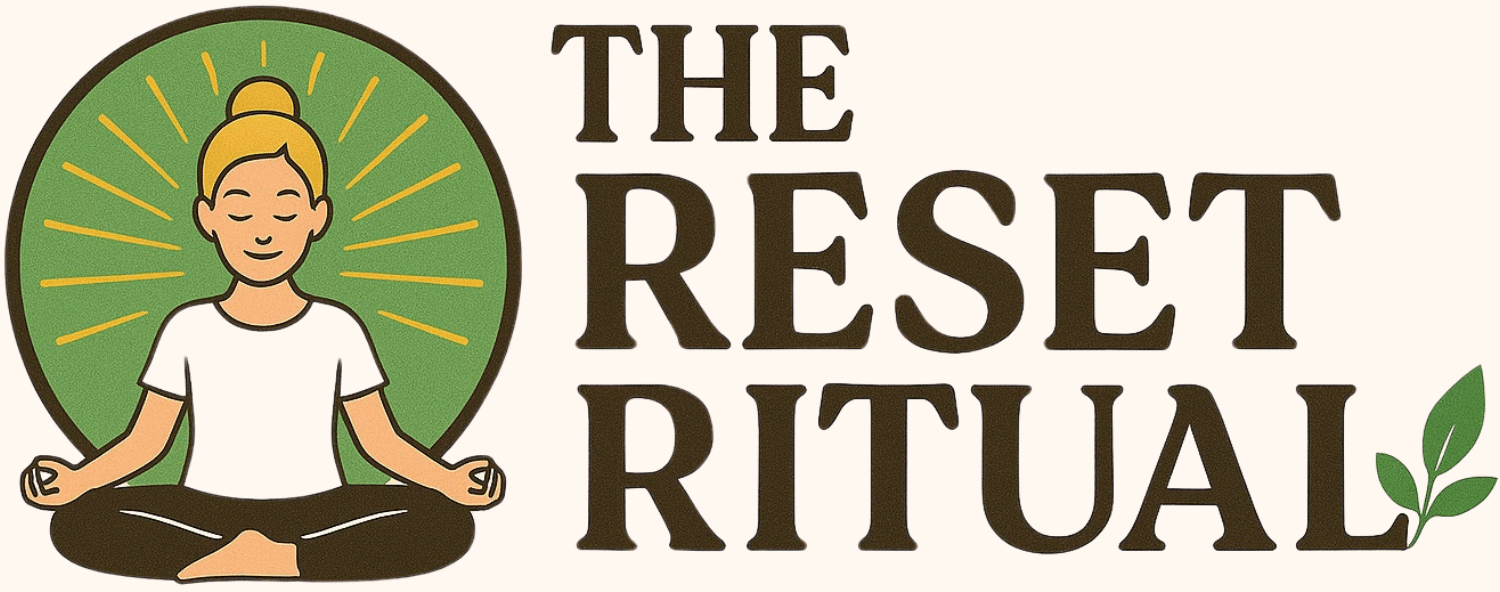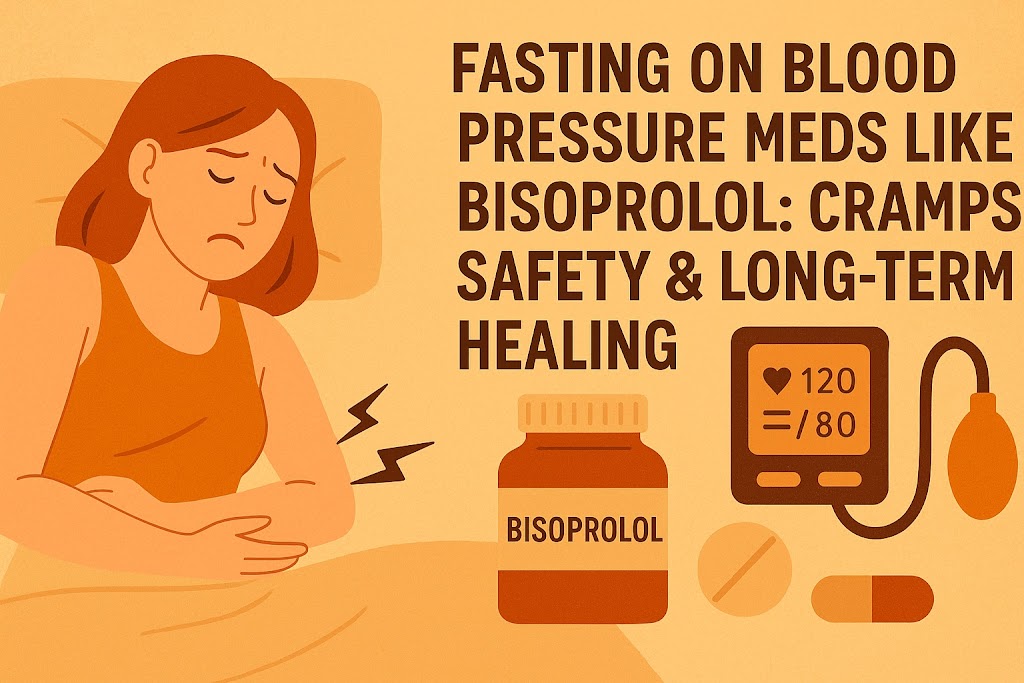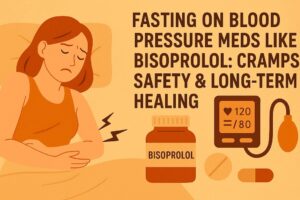Fasting on Blood Pressure Meds Like Bisoprolol: Cramps, Safety & Long-Term Healing
Is it safe to fast while on blood pressure medication like Bisoprolol? If you’ve experienced muscle cramps, blood pressure dips, or meds “not kicking in” during a fast, you’re not alone. Many people have this exact concern, especially during multi-day water fasts or prolonged intermittent fasting.
In this article, we’ll break down what the science says about:
- Whether Bisoprolol requires food to work
- Why fasting causes muscle cramps
- How to supplement safely with electrolytes
- When to be cautious—and when fasting might help you heal enough to reduce medication over time
1. What Is Bisoprolol and How Does It Work?
Bisoprolol is a beta-blocker, commonly prescribed to treat:
- High blood pressure
- Heart arrhythmias
- Angina or heart failure
It works by blocking stress hormones (adrenaline, noradrenaline), slowing your heart rate, and reducing the workload on the heart. This lowers blood pressure and prevents spikes.
But does it need food to work?
No. Bisoprolol does not require food for absorption. In fact, studies show its oral bioavailability is over 90% whether taken with or without meals.
Study:
“A dose of bisoprolol is absorbed almost completely from the gastrointestinal tract, independent of food intake.” — Drugs, 1991; 42(3):468–488
That means if your meds seem to be “not kicking in” during fasting, it’s not due to poor absorption. More likely, your fasting state is changing how your body reacts to the medication.
2. Why You Get Cramps While Fasting on Medication
Muscle cramps during fasting aren’t caused directly by Bisoprolol. They are usually due to:
- Loss of electrolytes (especially sodium, magnesium, potassium)
- Diuresis: fasting increases urination, flushing out minerals
- Dehydration: especially common during long fasts
- Overexertion while fasting plus medication = mineral imbalance
Beta-blockers can also reduce circulation to extremities, which may amplify cramping when combined with mineral loss.
How to fix it:
Use a mineral-rich electrolyte blend with zero sugar or sweeteners.
Consider magnesium, especially in glycinate or citrate form.
Recommended:
3. How Fasting Affects Blood Pressure (And Medication Response)
Extended fasting can naturally lower blood pressure. This is generally beneficial—especially for people with hypertension—but if you’re already medicated, it may lead to hypotension (too low blood pressure).
Signs of low blood pressure during fasting:
- Lightheadedness or dizziness when standing
- Fatigue or mental fog
- Heart palpitations or cold hands and feet
If this occurs, you may be over-medicated for your fasting state. This doesn’t mean you should stop your medication—but it does mean your dosage may need adjusting over time under doctor supervision.
4. Can Fasting Help You Eventually Stop Blood Pressure Meds?
Yes, for some people it can. Numerous studies show that weight loss, improved insulin sensitivity, and reduced inflammation from fasting all contribute to better blood pressure control.
As the root cause improves, the need for beta blockers like Bisoprolol may decrease—often gradually.
Supporting Research:
- Longer fasting windows reduce insulin resistance, a key driver of hypertension
PMCID: PMC5783752 - Intermittent fasting and time-restricted eating both show blood pressure-lowering effects
Cell Metabolism, 2018
Always consult your physician before changing any medication or routine. Never reduce blood pressure medication on your own—even if you’re feeling better.
5. Tips for Fasting Safely on Bisoprolol
Recommended:
- Take your meds at the same time each day
- Use electrolytes daily, even while fasting
- Hydrate well and rest if you feel dizzy
- Track blood pressure with a cuff or smartwatch
- Break your fast if symptoms become concerning
Avoid:
- Extended fasts (48–72 hours or more) without supervision
- Heavy workouts while fasting on blood pressure meds
- Combining fasting with multiple blood pressure medications or diuretics without support
6. What to Eat When Breaking Your Fast on Medication
Break your fast gently with blood pressure in mind:
- Start with bone broth or soft protein
- Add potassium-rich vegetables like avocado or cooked spinach
- Avoid large, high-carb meals that spike insulin
7. Long-Term Healing: Can Fasting Help You Wean Off Meds?
Fasting—when practiced consistently and safely—can reduce inflammation, support weight loss, and improve metabolic function. Over time, this leads to better cardiovascular markers and may allow you to reduce or eliminate blood pressure medications under professional care.
Healing is gradual. It may take weeks or months of intermittent fasting, proper nourishment, and lifestyle changes. Use fasting as a long-term tool, not a quick fix.
Final Thoughts
If you’re taking Bisoprolol or another beta-blocker, you can fast—but only with the right preparation. Focus on electrolytes, hydration, and listening to your body. Cramps and fatigue are usually signs that your mineral balance needs support, not that fasting is unsafe.
With time, healing, and professional guidance, fasting may help you reduce your medication needs and restore your energy naturally.
💡 Share this post with someone who’s navigating fasting while on blood pressure medication.
And if you’re on this journey too, you’re not alone.
Disclaimer: This article is for informational purposes only and is not medical advice. Always consult with your healthcare provider before changing your diet, fasting routine, or medications. This post may contain affiliate links. As an Amazon Associate, I earn from qualifying purchases.


